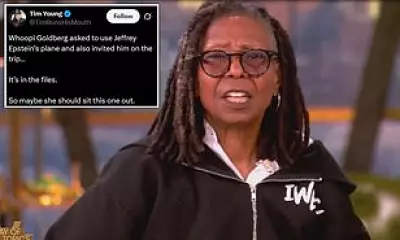
The long-awaited and deeply controversial documentary, In Whose Name?, has finally landed, promising an intimate portrait of the artist formerly known as Kanye West. Yet, according to a damning review, the film delivers anything but clarity, instead offering a disturbing and ultimately cowardly examination of a man engulfed by his own damaging rhetoric.
Directed by an unnamed filmmaker granted unprecedented access, the documentary sets out to chronicle Ye's journey following a series of public breakdowns and the firestorm of his antisemitic comments. However, the review condemns the project as a catastrophic failure, arguing it functions less as a critique and more as a complicit platform for West's unrepentant views.
A Platform for Hate, Not a Reckoning
The core criticism levelled at the film is its utter refusal to directly challenge or contextualise West's antisemitism. The reviewer notes a shocking absence of experts, historians, or community leaders who could address the real-world impact of such dangerous conspiracy theories. This void leaves West's venomous statements hanging in the air, unchallenged and sanitised, presented as mere extensions of his 'genius' and 'artistic struggle'.
This approach, the review argues, is not just negligent but ethically bankrupt. By framing hate speech as a part of a complex artistic persona, the documentary dangerously blurs the line between free expression and outright bigotry.
The Myth of the 'Tortured Genius'
The film appears to retreat into the well-worn trope of the 'troubled artist', using scenes of West's creative process and moments of vulnerability to elicit a sense of sympathy. The review dismantles this narrative, suggesting that this lens is a cop-out—a way to aestheticise and excuse behaviour that should be unequivocally condemned.
Rather than peeling back the layers to understand the source of his ideologies, the documentary is accused of merely adding more layers of mythologising obfuscation. It portrays a man surrounded by enablers, with the filmmaker seemingly joining their ranks.
A Missed Opportunity of Monumental Proportions
In Whose Name? had the potential to be a crucial cultural document—a serious exploration of fame, mental health, and the point where controversial art crosses into harmful propaganda. The review concludes that it spectacularly misses this mark.
Instead of answering its own titular question, the film is accused of becoming the very thing it should be criticising: an exercise in vanity and self-aggrandisement that gives a megaphone to hate while claiming to merely be observing it. The final verdict is clear: this is not a film that understands its subject, but one that has been utterly captured by him.





